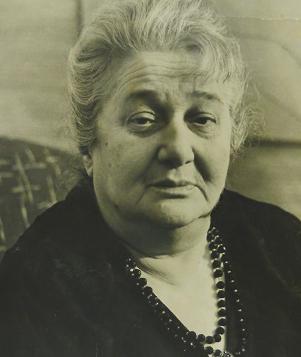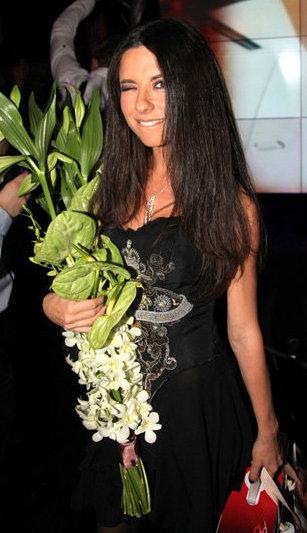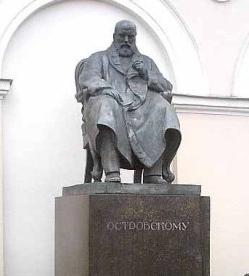A short biography of Anna Andreevna Akhmatova
Anna Andreyevna Akhmatova, the great Russianpoetess, was born on June 11, 1889. The birthplace became the city of Odessa, where her father, the hereditary nobleman Gorenko AA, worked as a mechanical engineer. Her mother, IE Stogovaya, was related to the first Russian poetess Anna Bunina. On the maternal line Akhmatova had the ancestor of the Horde Khan Ahmat, on his behalf she formed her pseudonym.

Childhood
A brief biography of Akhmatova mentions thattime when she was moved to Tsarskoe Selo at the age of one year. She lived there until she was sixteen. Among the earliest memories she always noted magnificent green parks, a racetrack with small motley horses, an old train station. Akhmatova spent the summer months on the shore of Streletskaya Bay, near Sevastopol. She was very inquisitive. I learned early to read the ABC of Leo Tolstoy. I listened attentively when the teacher was engaged in French with the older children, and at the age of five she could express herself. Biography and work of Akhmatova for the first time closely intertwined when she was only eleven years old. At this age, she wrote her first poem. A girl was studying at the Tsarskoye Selo Gymnasium. At first she was given it with difficulty. However, things soon went much better.
Youth
Brief biography of Akhmatova must certainlyreflect the fact that her mother in 1905 divorced her husband and moved with her daughter to Yevpatoria, and from there to Kiev. It was here that Anna entered the Fundukleevskaya Gymnasium, and after her graduation to the Higher Women's Courses, to the Faculty of Law. All this time she is vividly interested in literature and history.
Nikolay Gumilev

With Anna Gumilev, Anna met when she wasstill quite young, namely at fourteen. The fervent youth immediately fell in love with the beautiful Akhmatova. His love can be called unhappy, since he has achieved the hands of his beloved far from immediately. Several times he proposed to her and invariably received a refusal. And only in 1909 Akhmatova gives her consent. They were married on April 25, 1910. A brief biography of Akhmatova can not fully reflect the tragedy and hopelessness of this marriage. Nikolai wore his wife in his arms, idolized and surrounded by attention. However, at the same time often enough started the novels on the side. In 1912 he fell in love with his really young niece Masha Kuzmin-Karavaev. For the first time Akhmatova was deposed from the pedestal. This turn of events she could not bear, and therefore decided to take a desperate step. In the same year she gave birth to a son. Contrary to her expectations, the husband took this event quite coldly and continued to change it.
Creation
In 1911 Akhmatova moved to St. Petersburg. In this city, Akhmatova's museum will later be opened. Here she met Blok and first published under her pseudonym. Fame and recognition came to her in 1912 after the publication of the collection of poems "Evening". In 1914, she published a collection of "Rosary", and then in 1917 - "White Flock". A significant place in them takes a kind of love lyrics and poems by Akhmatova about the homeland.
Personal life

In 1914, Akhmatova's husband Gumilev went to the front. She spends most of her time in the estate of Gumilev Slepnevo in Tver province. A brief biography of Akhmatova goes on to say that after four years she divorces her husband and again marries the poet Shileiko VK. In 1921, a case was fabricated against Gumilev, and he was accused of being involved in a conspiracy against the revolution, in the same he was shot. Soon, in 1922, Akhmatova breaks up with her second husband and ties up a affair with Punin, who was also arrested three times. The life of the poetess was complex and sad. Her beloved son Lev was imprisoned for more than 10 years.
Ups and downs

In 1921, in October and April, Anna released twocollection, which were the last before a long strip of censorship of her poetry. In the 1920s, Akhmatova was subjected to harsh criticism, she was no longer published. Her name disappears from the pages of magazines and books. The poet is forced to live in poverty. From 1935 to 1940 Anna Andreevna worked on her famous work "Requiem". These poems by Akhmatova about her homeland, about the suffering of people, conquered the hearts of millions of people. In this work, it reflects the tragic fate of thousands of Russian women forced to wait for their husbands from prisons, to raise children in poverty. Her poetry was incredibly close to many. Despite the prohibitions, she was loved and read. In 1939, Stalin spoke positively about the work of Akhmatova, and she was again printed. But as before, the poems were subjected to severe censorship.
The Great Patriotic War
At the beginning of the war Anna Akhmatova (short biographymust necessarily reflect this) is in Leningrad. Soon she leaves for Moscow, and then evacuates to Tashkent, where she lives until 1944. She does not remain indifferent and tries to maintain the morale of the soldiers with all her might. Akhmatova helped in hospitals and spoke with reading poetry before the wounded. During this period she wrote poems "Oath", "Courage", "The gaps in the garden are dug." In 1944 she returned to the ruined Leningrad. Her terrible impression of what she saw, she describes in the essay "Three Lilacs."
The post-war period

1946 did not bring Akhmatova's happiness, or at leastrelief. Along with other authors, she was again subjected to the most severe criticism. She was expelled from the Writers' Union, which meant an end to any publications. The reason for everything was the meeting of the writer with the English historian Berlin. For a long time Akhmatova was engaged in translations. In attempts to save her son from imprisonment, Anna writes poems praising Stalin. However, such a victim was not accepted. Lev Gumilev was released only in 1956. By the end of her life, Akhmatova managed to overcome the resistance of bureaucrats and bring her creativity to a new generation. Her collection "The Running of Time" was published in 1965. She was allowed to accept the literary prize of Ethno-Taormina, as well as the title of Doctor of Oxford University. March 5, 1966, after suffering four heart attacks, Anna Akhmatova died. The Russian poetess was buried under Leningrad, on the Komarovskoye cemetery. The memory of this great woman is kept by Akhmatova's museum. He is in St. Petersburg, in the Sheremetevsky Palace.















